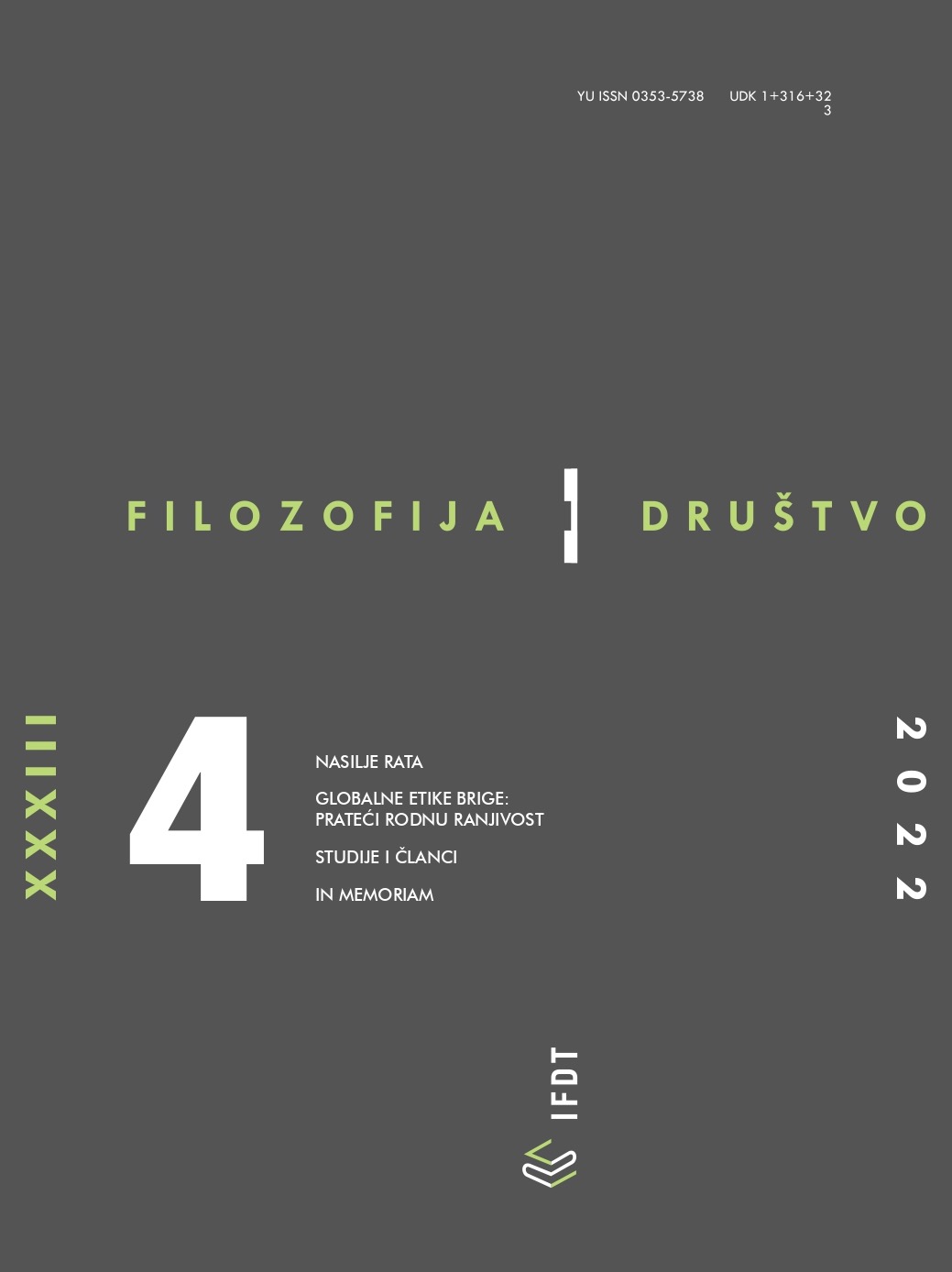THE ETHICS OF CARE IN THE LATE ANTIQUE CHRISTIAN DISCOURSE: (TRANS)HISTORICAL PERSPECTIVES ON THE SOCIAL, POLITICAL AND PHILOSOPHICAL VALUE OF CARE
THE ETHICS OF CARE IN THE LATE ANTIQUE CHRISTIAN DISCOURSE: (TRANS)HISTORICAL PERSPECTIVES ON THE SOCIAL, POLITICAL AND PHILOSOPHICAL VALUE OF CARE
Author(s): Larisa ORLOV VILIMONOVIĆSubject(s): Ethics / Practical Philosophy
Published by: Institut za filozofiju i društvenu teoriju
Keywords: Ethics of care; Christian ethics of care; empathy; Byzantine ethos; social justice; transhistoricity; Maximus the Confessor; emperor Justinian; Novels; Theotokos; maternal thinking
Summary/Abstract: The paper examines the historical context of ethics of care in early Christian discourse. The historical context of the ethics of care enables us to comprehend the ways in which ethics of care was employed and disseminated as part of political ideology and public discourse, significantly influencing the social relations of the rapidly changing Roman world between the fourth and seventh centuries. The Byzantine Empire is a prime example of a political entity in which philanthropy was the driving force behind imperial politics and social relations. Emperor Justinian’s laws, which proclaimed social justice and protection for those in need, serve as a case study for an ethics of care. Also, the ethics of care is reconfigured within the context of Byzantine theology as a theology of care, in which the primary virtue of a true Christian is his fervent love for the community (agape). The ethics of care is then examined from the perspective of gender and the newly established cult of the Theotokos, which degendered the concept of maternal thinking and maternal care by making it a universal experience and the new moral code for all Christians.
Journal: Filozofija i društvo
- Issue Year: 33/2022
- Issue No: 4
- Page Range: 910-933
- Page Count: 24
- Language: English

